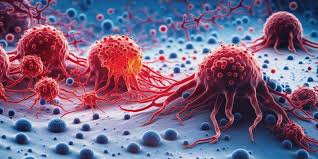A new study by scientists at the Van Andel Institute shows that cancer risk starts before birth. Published in Nature Cancer, the research found two different epigenetic states during development linked to cancer risk. One state leads to a lower lifetime risk, while the other results in a higher risk.
If cancer arises from the lower risk state, it tends to be a liquid tumor, like leukemia or lymphoma. In contrast, cancer from the higher risk state is usually a solid tumor, such as lung or prostate cancer.
The department chair at VAI, Dr J. Andrew Pospisilik, explained that most cancers are seen as diseases caused by genetic mutations, so little attention has been paid to how early development may influence cancer risk. This study changes that perspective. The discovery of these two differing epigenetic states opens new areas of research into cancer.
While cancer risk increases with age due to DNA damage and other factors, not every abnormal cell becomes cancer. Recent studies have shown that epigenetic mistakes also play a role in the disease. Epigenetics refers to how DNA instructions are activated or deactivated. Issues with these processes can allow unhealthy cells to survive and multiply.
In this study, Pospisilik and his team found that mice with lower levels of the Trim28 gene showed two specific patterns of epigenetic markers on genes related to cancer, even though they were otherwise the same. These patterns form during development and influence which cancer risk state develops.
“Everyone has some level of risk but, when cancer does arise, we tend to think of it just as bad luck. However, bad luck doesn’t fully explain why some people develop cancer and others don’t,” said Ilaria Panzeri, Ph.D., a research scientist in the Pospisilik Lab and the study’s first and co-corresponding author.
“Most importantly, bad luck cannot be targeted for treatment. Epigenetics, on the other hand, can be targeted. Our findings show that cancer’s roots may start during the sensitive period of development, offering a new perspective to study the disease and potential new options for diagnosis and treatment.”
The team found evidence of the two epigenetic states throughout tissues in the body, which suggests that developmental epigenetic risk may be common across cancers. In the future, they plan to explore the effects of these two states in individual cancer types.

Leave a Reply